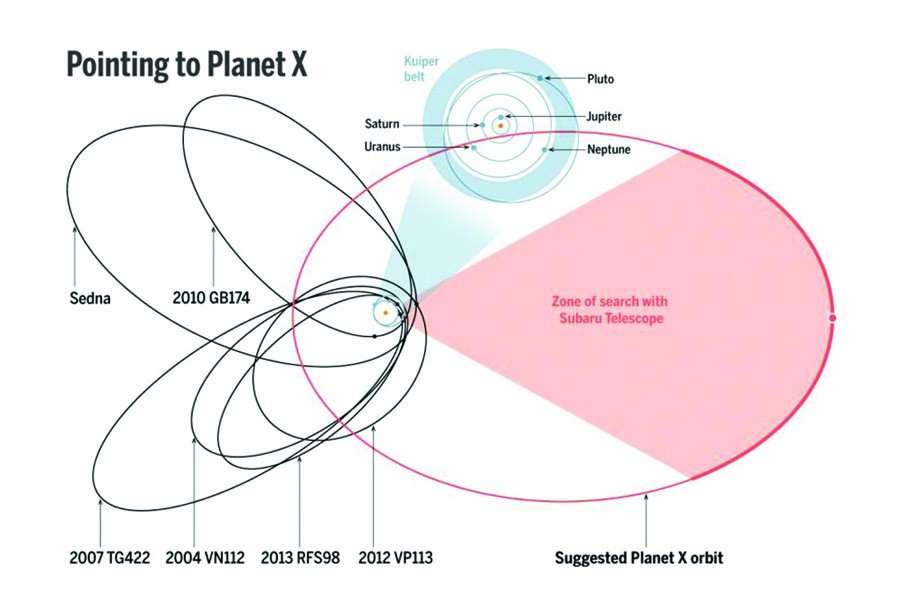Has Pluto been replaced?
Our Solar System may be gaining a new ninth planet
The search for such a “Planet X” has been going on for at least the last ten years, usually concluding with the idea as a myth, and is somewhat of a laughable affair for astronomers to be a part of.
The reason, the astronomers, Konstantin Batygin and Mike Brown, for the planet’s long period of going undetected, is that in the solar system’s infant stages, four and a half billion years ago, the planet was knocked far from the Sun’s orbit, and has now begun traveling in an elliptical orbit around the Sun. But, due to its distance from the Sun, it only orbits every 5,000 years, hence why it has gone undetected for so long. This long period of an orbit could mean that the planet orbits far outside of the Kuiper belt, further than most things humanity comes in contact with from space, and could lead to many more astronomical discoveries, if it comes within Earth distances, or telescopic viewing. However, it is also hypothesized that due to the planet’s immense orbit, it will only come as close to the Sun as 600 to 1200 AU.
Based on astronomical calculations, Batygin and Brown say that the planet in question is most likely 10 times the size of Earth.
The reason Batygin and Brown are so sure that a planet “x” exists is due to its “ghostly gravitalional effects”, the effect of a planet that’s ten times the size of Earth’s gravity on the surrounding celestial bodies, like asteroids. However, this could also be explained by other celestial “blips”, not necessarily an entirely new planet. Notable as well, though, is that multiple objects in similar areas are also being affected by this “mysterious force”, strengthening the idea that it is the gravity of a hidden planet.
The irony in this new discovery of a ninth planet is due to the fact that Brown, in the astronomer community, has gained the nickname “planet-slayer”, a tongue in cheek reference to how his discovery of Eris in 2005 led to the realization in the scientific community that Pluto was indeed too small to be classified as a planet, getting renamed to be a Dwarf Star.
Some may say that this is his “repentance”, replacing the (tragically) lost Pluto with whatever this Planet X is, but it seems to be a purely scientific effort.
However, with the discovery of this new planet, the “size” of our solar system could increase drastically, making the idea that there are parts of our own solar system that we have not yet seen, a more viable idea.




